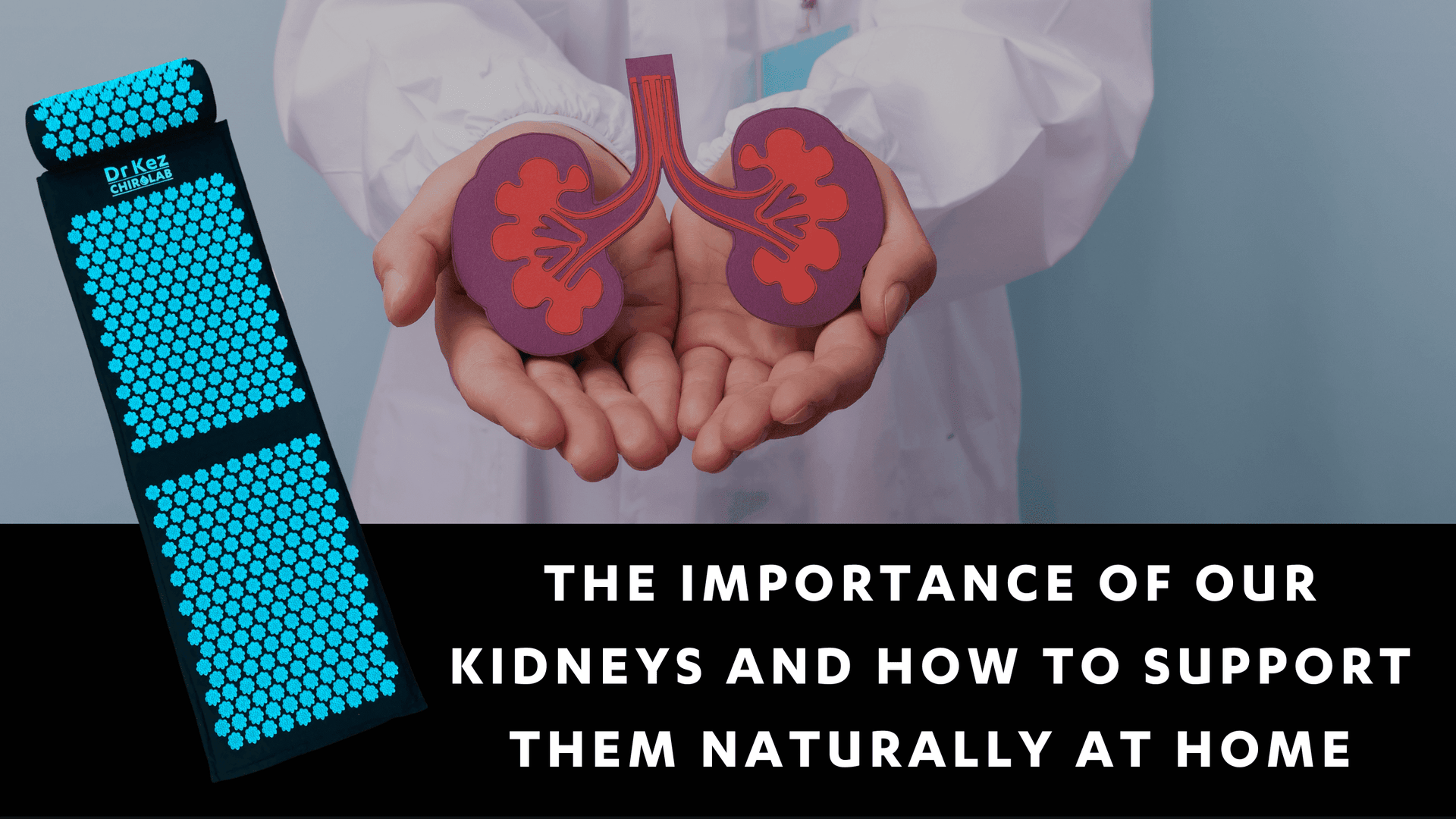
The Importance of our Kidneys and how to Support Them Naturally at Home
Every system within our body works in harmony with the other systems, to provide the balance that is required for us to be the healthiest version of ourselves possible. When it comes to balance however, the renal system really does take the cake….not literally 🤦♀️ The kidneys are one of the major organs that filtrate the blood to provide us with the ideal chemical balance of electrolytes and pH level, let balancing our blood pressure and helping to filter out waste products. This is just skimming over the surface of this extremely valuable organ, let’s go into a bit more detail
The kidneys are a pair of small, bean-shaped organs located in the lower back, just below the ribcage. Despite their relatively small size, the kidneys play an incredibly important role in maintaining overall health and wellbeing. In this blog, we'll explore the key functions of the kidneys and why they are so important for our health.
1. Filtering waste products

One of the most important functions of the kidneys is to filter waste products and excess fluids from the blood. Every day, the kidneys filter around 120-150 quarts of blood, removing waste products such as urea, creatinine, and excess salts and water. These waste products are then excreted in the urine, which is produced by the kidneys.
If the kidneys are not functioning properly, waste products can build up in the blood, leading to a condition called uremia. Symptoms of uremia can include fatigue, nausea, vomiting, and swelling in the legs and feet. In severe cases, uremia can lead to coma or death.
2. Regulating electrolyte balance
The kidneys also play a key role in regulating the levels of electrolytes in the body. Electrolytes are minerals such as sodium, potassium, and calcium that are important for proper nerve and muscle function. The kidneys help to maintain the proper balance of these electrolytes in the blood by filtering out excess amounts and retaining the appropriate amounts.
If the electrolyte balance in the body is disrupted, it can lead to a variety of health problems, including muscle weakness, cramps, irregular heartbeat, and seizures

3. Regulating blood pressure
The kidneys produce a hormone called renin, which helps to regulate blood pressure by controlling the volume of blood in the body. When the kidneys detect a decrease in blood pressure, they release renin into the bloodstream, which triggers a series of chemical reactions that ultimately lead to the narrowing of blood vessels and an increase in blood pressure.
If the kidneys are not functioning properly, it can lead to high blood pressure, which is a major risk factor for heart disease, stroke, and kidney disease.
4. Producing red blood cells
Another important function of the kidneys is to produce a hormone called erythropoietin, which stimulates the production of red blood cells in the bone marrow. Red blood cells are responsible for carrying oxygen from the lungs to the rest of the body, so having an adequate number of red blood cells is crucial for maintaining good health.
If the kidneys are not functioning properly, they may not produce enough erythropoietin, which can lead to a condition called anaemia. Anaemia can cause fatigue, weakness, and shortness of breath

5. Maintaining acid-base balance
Finally, the kidneys help to maintain a proper acid-base balance in the body by excreting excess acid or alkaline substances in the urine. This is important because many of the body's metabolic processes produce acids, which can build up in the blood and lead to a condition called acidosis. Acidosis can cause a range of symptoms, including confusion, lethargy, and coma.
If the kidneys are not functioning properly, they may not be able to excrete excess acids, leading to acidosis. Conversely, if the kidneys excrete too much acid, it can lead to alkalosis, which can cause muscle spasms, seizures, and other symptoms.
What importance does Chinese Medicine place on the kidneys?
In Chinese medicine, the Kidney meridian is considered to be one of the most important meridians in the body. The Kidney meridian is associated with the Kidney organ system, which includes not only the physical kidneys, but also the adrenal glands, reproductive organs, bones, and brain.
According to Chinese medicine, the Kidney meridian is responsible for storing and distributing the body's vital energy, or Qi. The Kidney meridian is also believed to be closely linked to the body's reproductive system, and is said to be responsible for fertility, sexual energy, and growth and development.
When the Kidney meridian is functioning properly, it is believed to provide the body with a strong foundation of vitality and resilience, as well as supporting healthy ageing and longevity. However, when the Kidney meridian is weakened or imbalanced, it can lead to a variety of health problems, including low back pain, fatigue, urinary issues, reproductive problems, and hormonal imbalances.
To support the health of the Kidney meridian, Chinese medicine practitioners may recommend a combination of acupuncture, herbal remedies, dietary changes, and lifestyle modifications. They may also recommend specific acupressure points or exercises that can help to strengthen and balance the Kidney meridian, depending on the individual's specific needs and health concerns.
Where is the kidney meridian located?

In Traditional Chinese Medicine (TCM), the Kidney meridian is one of the 12 main meridians that run through the body. The Kidney meridian starts at the bottom of each foot and runs up the inner leg, through the torso, and ends at the collarbone. It is a yin meridian, meaning that it is associated with the feminine, receptive, and inward aspects of the body.
The Kidney meridian pathway travels along specific acupuncture points that are believed to regulate the flow of energy (Qi) through the meridian. These points are located on the inside of the leg, along the lower abdomen, and on the chest and collarbone. Stimulating these points through acupuncture or acupressure is believed to help balance the Kidney meridian and support overall health and wellbeing.
It is important to note that the concept of meridians in TCM is different from the anatomical structures in Western medicine. While the Kidney meridian is believed to be connected to the physical Kidney organ, the pathway and points of the meridian may not correspond to the physical location of the organ in the body.
How do you lie on the Acupressure Mat to assist in balancing the kidney meridian?

Using the long acupressure mat, lie on your tummy on the mat, with your arms, head and neck hanging over the end of your bed. Turn your toes out so that the inside of your legs can touch the mat. Lie in this position for 15 minutes. Then place your acupressure pillow on the floor and stand on it for 5 minutes (or within tolerance), to address the Kidney 1 and Kidney 2 meridian points. Kidney 1 is directly under the foot and the Kidney 2 is inside the arch, so the pillow works well to activate both of these points, as opposed to just standing on the acupressure mat which doesn’t quite reach the Kidney 2 acupressure point effectively. Our long acupressure mat comes with an acupressure pillow. If you have another brand of mat that didn’t come with a pillow, separate acupressure pillows can now be ordered on our site. Our acupressure pillow is versatile and can be used for more than just placing under your neck when lying on your back. It can become a lumbar support (great if you suffer from back pain), it can be used to stand on (which gets right under your arch), it can be used to lie on when your have abdominal pain or bloating to provide extra resistance, or along the spine to help open up your rounded shoulders posture.








